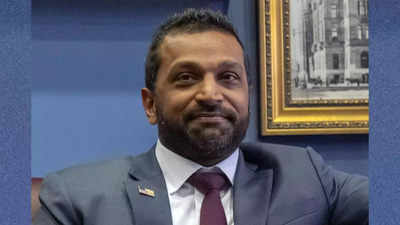
Kash Patel, a trusted aide to Donald Trump and his pick to head the FBI, is facing renewed controversy following revelations that the Trump-era Justice Department secretly seized his phone records as part of leak investigations, reported CNN.
Patel, a key figure in the administration’s efforts to address intelligence leaks, has long been a polarising figure in political and legal circles.
Patel’s role in leak investigations
During his tenure as a senior aide on the House Intelligence Committee, Patel played a central role in Trump’s efforts to investigate the origins of the FBI’s Russia probe and expose leaks of classified information.
According to a Justice Department inspector general report, Patel was among 43 congressional staffers whose records were subpoenaed during the DOJ’s wide-ranging leak investigations.
The report also highlighted that two Democratic lawmakers, Adam Schiff and Eric Swalwell, were targeted, raising concerns about executive overreach.
Patel’s involvement in these investigations positioned him as a central player in the Trump administration’s aggressive approach to tackling leaks, which included subpoenas for journalists from The New York Times, The Washington Post, and CNN.
The scrutiny surrounding Patel intensified in 2022 when he filed a lawsuit against the Justice Department and FBI officials, accusing them of retaliatory actions. Patel claimed that his Google account records were improperly subpoenaed during the leak inquiry, framing the investigation as a politically motivated act against him.
Although the lawsuit was dismissed, it added to his contentious history with federal law enforcement.
Patel’s nomination to replace Christopher Wray as FBI director has reignited concerns about his suitability to lead the country’s top law enforcement agency. Critics point to his limited experience, three years as a federal prosecutor and his close ties to Trump, raising fears of partisanship.
As reported by The New Republic, Patel has been accused of targeting political enemies.
An “enemies list” he published could potentially be used against his critics, suggesting a combative approach to leadership. Legal experts warn this could open the door to claims of malicious prosecution if he pursues investigations against individuals on that list.






